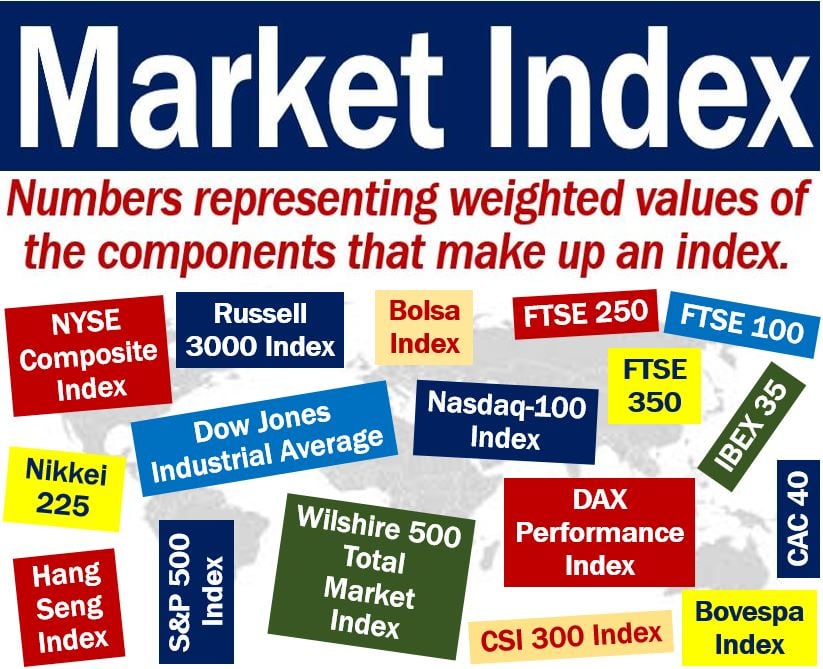A market index consists of numbers that represent weighted values of different components. The components may be shares, bonds, commodities, or prices of goods. The numbers may also represent inflation rates or GDP growth rates.
GDP stands for Gross Domestic Product, i.e., all the goods and services that a country produces in one year.
A market is a place where businesses and individuals gather to buy and sell, i.e., trade, products. The term refers to either a place, such as a farmers market, or an abstract description of the participants in a sector.
There are market indices for virtually anywhere a market exists.
Market index – stock markets
When we use the term ‘market index’ on its own, we are usually referring to stocks. In this context, the word ‘stocks‘ means ‘shares.‘ Hence, the term ‘stocks and shares.’
In other words, the term ‘market index’ on its own usually means ‘stock market index.’

Market index – a basket of stocks
The SEC says that a market index tracks the performance of a ‘basket’ of stocks. The abbreviation ‘SEC‘ stands for the (United States) Securities and Exchange Commission. We consider those specific stocks to represent a particular market sector.
Alternatively, the components could represent a part of the US economy or the whole US stock market.
The SEC says the following regarding types of indices:
“There are indices for almost every conceivable sector of the economy and stock market.”
“Many investors are familiar with these indices through index funds and exchange-traded funds whose investment objectives are to track the performance of a particular index.”
Market index types – USA
US investors are familiar with many different indices. The NYSE Composite Index, and the Dow Jones Industrial Average (DJIA), for example, are market indices.
The S&P 500 Composite Stock Price Index, the Wilshire 5000 Total Market Index, and Nasdaq-100 Index are also market indices.
Market Index – UK
Most stock market indices in the UK, for example, refer to a version of the Financial Times Stock Exchange Index (FTSE).
People investing in British stocks consult the FTSE 100, FTSE 250, FTSE 350, and FTSE AIM All Share Index.
The FTSE AIM 100, FTSE AIM UK 50, and FTSE Small Cap are also stock market indices.
Major Market Index
Its official name is the NYSE Arca Major Market Index. It consits of twenty blue-chip company stocks, of which 17 also appear in the Dow Jones Industrial Average.
People also refer to it as the XMI or MMI.
Futures and options traders base their operations on the movements that occur in this index.
